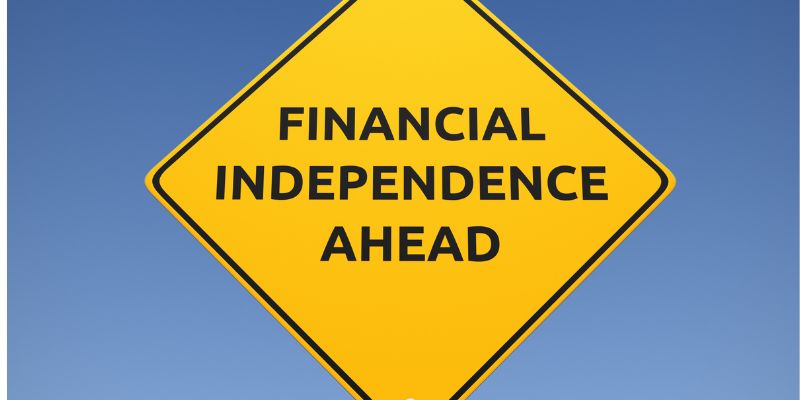3 Opposing Perspectives For Financial Independence
What does financial independence mean to me, and what are my specific financial goals?
3 Opposing Perspectives For Financial Independence: What is Financial Independence?
Financial independence refers to the state of being able to support oneself financially without relying on others or being tied to a specific job or income source. It is the ability to cover all expenses and maintain a desired lifestyle without the need for a traditional 9-to-5 job or constant reliance on a paycheck.
Achieving financial independence often involves careful planning, disciplined saving, and strategic investing. It requires individuals to build a sufficient nest egg or passive income streams that can generate enough money to cover their expenses indefinitely.
Financial independence provides individuals with the freedom to make choices based on their personal preferences and goals, rather than being driven solely by financial considerations. It allows for greater flexibility in career choices, the pursuit of passions and hobbies, and the ability to spend more time with loved ones or engage in meaningful activities.
However, financial independence is not a one-size-fits-all concept. It can mean different things to different people, depending on their individual circumstances, goals, and values. Some may strive for complete financial freedom, while others may aim for a certain level of financial security that allows them to have more control over their lives.
Overall, financial independence is a goal that many individuals aspire to achieve, as it provides a sense of security, autonomy, and the ability to live life on one’s own terms. Look at he three opposing perspectives to give you more depth.
3 Opposing Perspectives For Financial Independence: How to Achieve Financial Independence

This section of the article will delve into the first perspective on financial independence, which focuses on providing guidance and information on how individuals can achieve this goal. It will offer tips, strategies, and advice on saving, investing, budgeting, and generating passive income.
The section will begin by defining what financial independence means and why it is an important goal for many people. It will then explore various methods and approaches that individuals can take to attain financial independence, such as creating a budget, reducing expenses, increasing income, and investing wisely.
The article will provide practical tips and strategies for saving money, including advice on automating savings, setting financial goals, and prioritizing expenses. It will also discuss the importance of investing and provide guidance on different investment options, such as stocks, bonds, real estate, and retirement accounts.
Furthermore, the section will highlight the concept of passive income and explore various ways individuals can generate passive income streams, such as through rental properties, dividend-paying stocks, or online businesses.
Overall, this section will serve as a comprehensive guide for individuals who are seeking information and guidance on how to achieve financial independence. It will provide practical advice and actionable steps that readers can take to improve their financial situation and work towards their goal of financial freedom.
3 Opposing Perspectives For Financial Independence Challenges and Obstacles to Financial Independence

This section of the article will delve into the various challenges and obstacles that individuals may encounter on their journey towards financial independence. It will provide insights and solutions to common hurdles that can hinder one’s progress in achieving financial freedom.
One of the primary challenges that people face is debt. Whether it’s credit card debt, student loans, or mortgages, debt can significantly impede one’s ability to save and invest for the future. This section will explore strategies for managing and reducing debt, such as creating a budget, prioritizing debt payments, and seeking professional assistance if needed.
Another obstacle to financial independence is a lack of financial literacy. Many individuals may not have the necessary knowledge and skills to effectively manage their finances and make informed decisions. This section will provide resources and tips for improving financial literacy, including recommended books, online courses, and workshops.
Job insecurity and economic downturns can also pose significant challenges to achieving financial independence. This section will discuss strategies for navigating these uncertainties, such as building an emergency fund, diversifying income streams, and developing transferable skills.
Overall, this section will provide valuable insights and practical solutions to help individuals overcome the challenges and obstacles they may encounter on their path to financial independence. By addressing these hurdles head-on, readers will be better equipped to achieve their financial goals and ultimately attain the freedom and security they desire.
3 Opposing Perspectives For Financial Independence: How to Achieve Financial Independence

This section of the article focuses on providing tips and strategies for individuals who are seeking guidance on how to achieve financial independence. It delves into various aspects such as saving, investing, budgeting, and generating passive income.
The section begins by emphasizing the importance of setting financial goals and creating a plan to achieve them. It highlights the significance of saving money and offers practical advice on how to save effectively, including tips on budgeting, cutting expenses, and automating savings.
The article then moves on to discuss the importance of investing and provides insights into different investment options such as stocks, bonds, real estate, and mutual funds. It explains the concept of compound interest and the potential benefits of long-term investing.
Furthermore, the section explores the concept of generating passive income and provides ideas and strategies for creating additional streams of income. It discusses various passive income sources such as rental properties, dividend-paying stocks, online businesses, and royalties.
Overall, this section aims to provide readers with practical advice and actionable steps they can take to achieve financial independence. It empowers individuals by equipping them with the knowledge and tools necessary to make informed financial decisions and work towards their financial goals.
Tips and Strategies for Saving and Investing
In this section, we will explore various tips and strategies that can help individuals achieve financial independence through effective saving and investing.
One of the key aspects of saving is creating a budget and sticking to it. By tracking expenses and identifying areas where money can be saved, individuals can allocate more funds towards their financial goals. This may involve cutting back on unnecessary expenses, negotiating bills, or finding ways to increase income.
Investing is another crucial component of achieving financial independence. By putting money into assets that have the potential to grow over time, individuals can generate passive income and build wealth. This section will provide insights into different investment options such as stocks, bonds, real estate, and mutual funds. It will also discuss the importance of diversification and risk management in investment portfolios.
Additionally, this section will cover the concept of compound interest and how it can significantly impact long-term savings and investment growth. It will provide tips on maximizing returns through strategies like dollar-cost averaging and regular portfolio rebalancing.
Overall, this section will equip individuals with practical advice and strategies to effectively save and invest their money, ultimately helping them progress towards financial independence. By implementing these tips and strategies, individuals can take control of their finances and work towards achieving their long-term financial goals.
Overcoming Debt and Financial Literacy Challenges
One of the key challenges that individuals face on their journey towards financial independence is debt. Many people find themselves burdened with various forms of debt, such as credit card debt, student loans, or mortgages. Overcoming these debts is crucial in achieving financial freedom.
In this section, we will explore strategies and tips for overcoming debt and improving financial literacy. We will discuss the importance of creating a budget and sticking to it, as well as the benefits of paying off high-interest debts first. Additionally, we will delve into the concept of debt consolidation and explore how it can help individuals manage their debts more effectively.
Financial literacy is another crucial aspect of achieving financial independence. Many individuals lack the necessary knowledge and skills to make informed financial decisions. In this section, we will provide resources and recommendations for improving financial literacy, such as attending financial education courses, reading books on personal finance, or seeking guidance from financial advisors.
Furthermore, we will address common misconceptions and myths surrounding debt and financial literacy. It is important to debunk these misconceptions and provide accurate information to empower individuals to make sound financial decisions.
By providing practical advice and guidance on overcoming debt and improving financial literacy, this section aims to equip individuals with the necessary tools to navigate the challenges they may encounter on their path to financial independence.
Navigating Job Insecurity and Economic Downturns
In the pursuit of financial independence, one of the key challenges that individuals may face is job insecurity and economic downturns. This perspective acknowledges the reality that external factors beyond one’s control can significantly impact their financial stability and ability to achieve independence.
Job insecurity refers to the uncertainty and instability individuals may experience in their employment. This can be due to factors such as layoffs, company closures, or industry shifts. During periods of job insecurity, individuals may struggle to maintain a steady income, save money, or invest for the future.
Economic downturns, on the other hand, refer to broader economic challenges that affect industries, markets, and the overall financial landscape. These downturns can result in job losses, reduced income opportunities, and decreased investment returns. Navigating through economic downturns requires individuals to adapt their financial strategies, make informed decisions, and potentially explore alternative income sources.
Within this perspective, individuals may be searching for strategies to mitigate the impact of job insecurity and economic downturns on their path to financial independence. They may be seeking advice on building emergency funds, diversifying income streams, or developing skills that are in demand even during challenging times.
Overall, this perspective recognizes the importance of being prepared for unexpected setbacks and understanding how to navigate through them while still working towards financial independence.
Finding Work-Life Balance and Happiness
In the pursuit of financial independence, it is crucial to consider the importance of finding a balance between work and personal life, as well as prioritizing happiness. While achieving financial freedom is undoubtedly a significant goal, it should not come at the expense of one’s well-being and overall satisfaction in life.
Finding work-life balance is essential to avoid burnout and maintain a healthy lifestyle. It involves allocating time and energy to both professional and personal commitments, ensuring that neither aspect dominates the other. This may require setting boundaries, managing time effectively, and prioritizing self-care activities. By achieving a harmonious balance, individuals can enjoy the benefits of financial independence while still having time for family, hobbies, and personal growth.
Furthermore, it is crucial to recognize that financial success alone does not guarantee happiness. While financial independence can provide security and freedom, it is essential to consider other aspects of life that contribute to overall well-being. This includes nurturing relationships, pursuing passions and interests, maintaining good physical and mental health, and contributing to the community.
By acknowledging the importance of work-life balance and happiness, individuals can strive for financial independence while also prioritizing their overall well-being. It is essential to find a balance that allows for personal fulfillment and satisfaction, rather than solely focusing on monetary achievements. Ultimately, true success lies in achieving a harmonious and fulfilling life that encompasses both financial independence and happiness.
Conclusion: Striving for Financial Independence while Considering Alternative Viewpoints
In conclusion, achieving financial independence is a goal that many individuals aspire to, but it is important to consider alternative viewpoints and find a balance that works for you. While the pursuit of financial freedom can provide security and opportunities, it is crucial to not overlook other aspects of life that contribute to overall happiness and fulfillment.
Throughout this article, we have explored three opposing perspectives on financial independence. We have discussed how to achieve financial independence, highlighting tips and strategies for saving, investing, and generating passive income. We have also delved into the challenges and obstacles that individuals may face on their journey towards financial independence, such as debt, lack of financial literacy, and job insecurity. Additionally, we have examined critiques and skepticism surrounding the concept of financial independence, emphasizing the importance of work-life balance and overall well-being.
It is essential to strike a balance between financial stability and personal fulfillment. While financial independence can provide a sense of security and freedom, it should not come at the expense of other important aspects of life, such as relationships, health, and personal growth. It is crucial to consider alternative viewpoints and find a path that aligns with your values and goals.
In conclusion, strive for financial independence, but do so while considering alternative viewpoints and finding a balance that allows you to lead a fulfilling and meaningful life.
